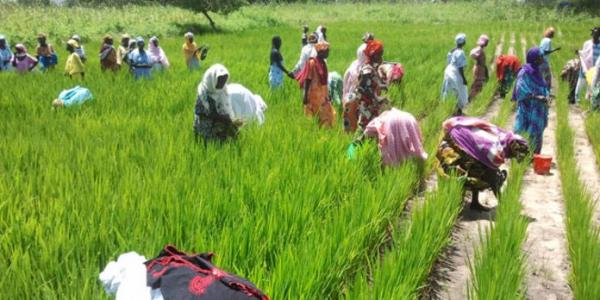| Senegal’s food supply is heavily dependent on imports. In addition, various policies are conducted by the regimes to ensure food security. This is what emerged from the study on the state of food policies presented yesterday, Friday, September 10, through a webinar organized by CICODEV-Africa. |
| The Pan-African Institute for Citizenship, Consumers and Development (CICODEV-Africa), in partnership with the Alliance for Food Sovereignty in Africa (Afsa), held a webinar yesterday, Friday, September 10, for the restitution of a study on the state of food policies in Senegal. According to Professor Ibrahima Sall, from the Department of Geography at Cheikh Anta Diop University (Ucad) in Dakar, who conducted the survey, there are several policies, programs and projects to achieve food security in our country. There is also a high dependence on food imports. The survey also showed that the incidence of Covid-19 could jeopardize the food system. Thus, to contain the impact of Covid-19, the state is implementing food system resilience strategies. Organized around the agro-silvicultural and fisheries value chain, the system is marked by profound changes in eating habits directly linked to urbanization. The countryside is adopting the consumption patterns of the city, with a predominance of rice that is supplanting local cereals. Production remains uncertain and is dependent on rainfall variations.
AN EXTROVERTED FOOD SUPPLY THAT IS HEAVILY DEPENDENT ON IMPORTS 1,984,531 TONS OF CEREALS IMPORTED IN 2018, WORTH 210 BILLION, COMPARED TO 207.1 BILLION IN 2017 Fatou NDIAYE Source:http://www.sudonline.sn/ of September 11, 2021 |
POLICY DIVERSITY, INCREASED RELIANCE ON IMPORTS

